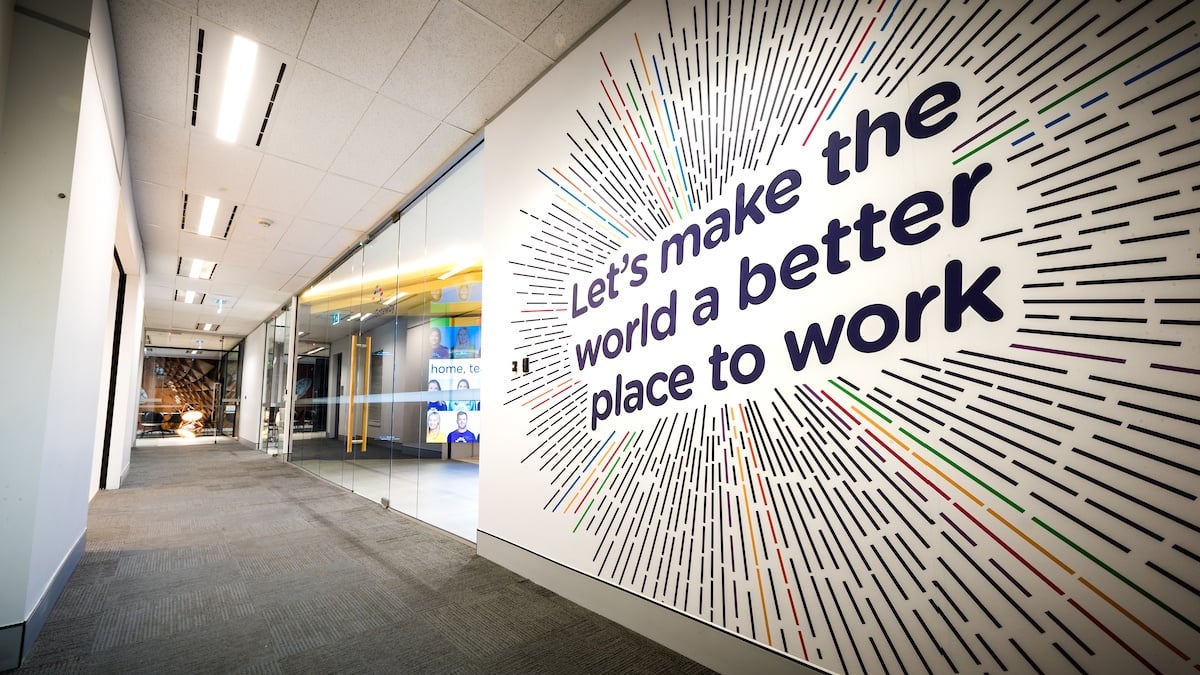4 min read
Finding top talent that will help drive productivity and your purpose, mission and values is tough, but getting them to choose you amongst a sea of competitors can be even harder. Excellent candidates are likely to have the freedom of choice about where they want to work and do their research before they even apply for a role.
That’s why it’s more important now than ever before to think about how to build a competitive Employee Value Proposition, or EVP. Your EVP is made up of all the things that make your business different and great, and is something you should be expressing 24/7/365 days per year.
The last thing you want is to miss out on great talent just because you haven’t been able to clearly define and articulate why your company is worth working for.
Just as every business needs to clearly articulate its unique selling proposition, or USP, to get a customer’s attention and loyalty, shaping and sharing a compelling EVP to get an employee’s attention and loyalty is just as important.
Here are seven elements of your EVP that you need to get right if you want people to put the effort into applying for your job ads.
1. Job design
Designing a good job that fits both the needs of the company and the needs of the individual shouldn’t be complicated, but few leaders give it the thought it deserves. At the end of the day, we all want to use our skills to do something meaningful, something that stimulates and challenges us and, ideally, in the long term, gives us opportunities for personal and professional growth. Whether you’re writing a new job advertisement or revisiting an existing role within your team, ask yourself:
- Does the role connect to your mission and does it address the needs of the company? (this enables meaningful work)
- How much freedom can/should/does the person have in this role? (this enables autonomy)
- How do you see the role developing over time? (this enables mastery)
2. Relevant and diverse benefits
Like I said, attracting great talent and maintaining job satisfaction is rarely just about the money. Providing your employees with a variety of benefits that make a tangible difference to their day-to-day lives – be it financial, mental, developmental or relational — shows that you understand the challenges your employee demographic faces in both their professional and personal lives, and are willing to positively influence what you can to help them better achieve work-life integration.
Discover more ideas on innovative benefits that will help you build a competitive EVP »
3. Company values
Your EVP needs to incorporate your corporate brand, your employer brand and your purpose, mission and values. These need to be clearly articulated in any job ad, so your candidates know how their role will fit into the “bigger picture,” and whether they are in sync not just with what your company wants to achieve, but how your company wants to achieve it.
4. Culture
We live in an age where people expect a lot more from their work than a paycheck or a foosball table (because, while fun, is something they can play anywhere). They want to feel valued and want to be surrounded by people who can inspire and challenge them to be better. This is culture — intangible but visible day-to-day demonstration of your company values at work. It’s the heartbeat and “personality” of your organization. What you put into your EVP inspires your culture in everything (and everyone) your company touches.
5. Leadership principles
People don't leave companies, they leave managers. So it makes sense that candidates will look closely at the leadership principles of any prospective employer. Showcasing your leadership team, their principles, mission and culture will help candidates determine if the role is a good fit. If you can showcase how your managers' principles and actions are aligned to your leaders, that will help candidates feel comfortable that your organization doesn't just talk about your purpose, mission and values but that you "walk the walk" too.

6. Fair pay
Money isn’t the be-all and end-all of why someone applies for and chooses a job, or even leaves a job, but it’s important not to underestimate the impact pay has on a candidate’s decision-making process. The salary you pay says something about how you value your employees’ time and skill. So while you should never try to buy people, you should always be fairly compensating them for that time and skill.
7. Recognition and reward
Why do we teach our kids to say “thank you” at such a young age? Because every person wants to be recognized for their contribution, no matter how small. The same goes in our workplaces — we should never underestimate the power of gratitude. The behavior we recognize and reward in our workplaces is the behavior that gets repeated again and again, so by creating and nurturing a culture of recognition through thoughtful application of rewards and recognition programs, we automatically foster a high-performance, inclusive community that attracts and retains great people.
Standing out as a preferred employer requires focus on employee engagement and a commitment of your time and resources. But when the fruit of all that hard work is a fantastic employee experience that your people love, and that encourages great people to join you on your journey, it is worth every cent.

 Robert Hicks
Robert Hicks




